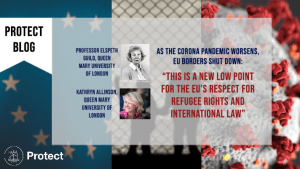by Alyane Almeida de Araujo, Université de Lille (France) and Universidade Federal de Pernambuco (Brazil)
[This blog is part of a series on the pandemic. The introduction to the series can be found here.]
What happened to work/life balance from a gender perspective during the covid pandemic in Brazil and France? This blog post attempts to answer this question by analysing the legal and the factual contexts considering the impact of stay-at-home orders on the possibility to work from home (WFH) and the gendered division of labour related to care. Taking an intersectional perspective to verify the “necessary factors” and “sufficient factors” about the law and the society, we can reflect on the ambiguities that exist with working from home, which reinforces gender stereotypes as an obstacle to achieving equality. (more…)








